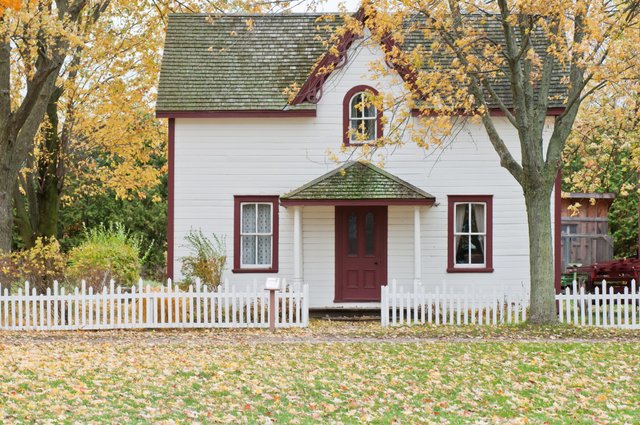Level V — Buy Your First Property

So now you’re half way through the game of Winning Financial Freedom. You’ve finished the three basic levels by eliminating bad debt, saving some cash and starting a retirement account. You have also started an investment account. Level V is about bringing real estate into your strategy and into your portfolio. The easiest way to do that is to buy your house.
REASONS TO BUY
There are several advantages to buying a house, especially if you live in a “hot” area like Austin, Los Angeles, Seattle or any of the cities that are really growing right now. There are several more reasons for buying a house, which we’ll talk about in a bit, but the two main reasons are mitigating your top two expenses — taxes and shelter (rent/mortgage and putting a roof over your head).
Buying a home allows you to deduct the mortgage interest from your taxes which allows you to minimize/mitigate your single largest expense — taxes. This also allows you to lock in the amount it will cost to provide housing for yourself and your family which helps mitigate your second biggest expense — rent. Rent will NOT be going up for you over the coming years, because you’ve locked in a mortgage. For everyone else who rents, their cost will be increasing as demand increases and as inflation increases.
There are also two more benefits to buying a home. The first, depreciation, is another tax advantage. Depreciation lets you recover certain losses associated with the depreciation of qualifying property. The other extra benefit is leverage through the use of a mortgage. If you’re able to put only 10% down and finance 90% of the price of the home, then you’re able to use leverage against the property’s value to improve your potential return.
For example, let’s say you buy a house for $500,000. You put $50,000 down (10%) for the purchase and get a mortgage for $450,000 (90%), using simple terms and not factoring in PMI (private mortgage insurance or property taxes). Let’s say the home appreciates 10% in value over the next four years to $550,000. Your home value increased by 10% but relative to how much you put down, you generated a 100% return on your down payment.
Reducing your two largest expenses (taxes and shelter) and creating a leveraged asset that can rise in value over time, provides compelling reasons for how buying a house can increase your overall net worth.

FUTURE BENEFITS
There are some future benefits you can realize years after you’ve purchased a home. One is that, once the value of your property has increased, you can re-finance your mortgage and potentially pull money out as capital (in states like Texas that are considered non-homestead states). You can do investing or capital improvement projects on your home to continue advancing your net worth. I’m not necessarily saying you should do that, but depending on your situation it may be an option (and it’s always nice to have options.)
Also, you can consider creating a cash flow asset by living elsewhere and renting out your home. Remember, rent usually increases over time with inflation. At some point, you’ll be able to rent out your home for a lot more than your mortgage payment, and be able to pocket the difference in the form of cash flow. You can then buy another home and live in that home, increasing your real estate empire. Or, you could move to a cheaper “cost of living” state and live off the difference. Again, I’m not recommending this, per se, but it sets up all kinds of options for you to get to your end goal. And, as a reminder, the end goal is to create more passive income than current expenses, therefore becoming financially free and out of the “financial rat race.”
ALTERNATIVES
Maybe you don’t want to own your own house. That’s okay, too. I would recommend some alternative where you’re investing using real estate. Maybe you go in with two friends and buy a rental income property. Maybe you buy a rental income property on your own. Maybe you find a limited partnership that’s looking for investors in cash flow real estate.
All of these alternatives are okay, too. Just make sure you’re playing an active role in the selection of the property and the price you’re going to pay. Be involved in research. Learn. Real estate is one of the most direct ways to build compounding wealth over time, and it has a lot of tax-friendly advantages that you can leverage. Level V is about educating yourself on real estate investing and directly owning some real estate property. Buying a residential home is the most common way, but all alternative approaches are welcome.
PUTTING IT ALL TOGETHER
Okay, so let’s talk about where we’re at by this stage of the game. You’ve completed the basic levels of I, II and III. Now with buying a house, you’ve completed the two intermediate levels, IV and V. This puts you in a good position. You’ve eliminated all your “bad debt.” You’ve built an emergency fund and you have a nice cash position. You’ve started a retirement fund and you have a plan, including a goal and a portfolio asset allocation based on the core factors of your goal, time horizon and risk tolerance. Also, you’ve started an investment account where you’re investing in public equities and fixed income.
Now, with the purchase of a home, you have a solid real estate asset. You are now truly diversified with liquid cash assets, invested paper assets for growth (stocks and bonds) and real estate in the form of direct home ownership. This is a really sound foundation. You’ve gotten to this point by learning lessons of producing more than you consume, being able to save, learning about retirement and investing. You’re taking advantage of the tax code to reduce and minimize your two largest expenses — taxes and shelter. By managing these expenses, you’re producing more towards your net worth. In addition, over time, this is what’s going to propel you farther, faster.
By completing Level V, you’ve completed the intermediate rounds of the game. You’ve set up a mid-game where you can now start creating cash flow assets that, at some point, will be enough to take you out of the rat race and to true Financial Freedom.
If you enjoyed this article, like it to help others find it! For more, join us on Facebook and Twitter and if you want to receive the latest weekly updates on Investing, Entrepreneurship & Personal Finance, feel free to subscribe to our NEWSLETTER.